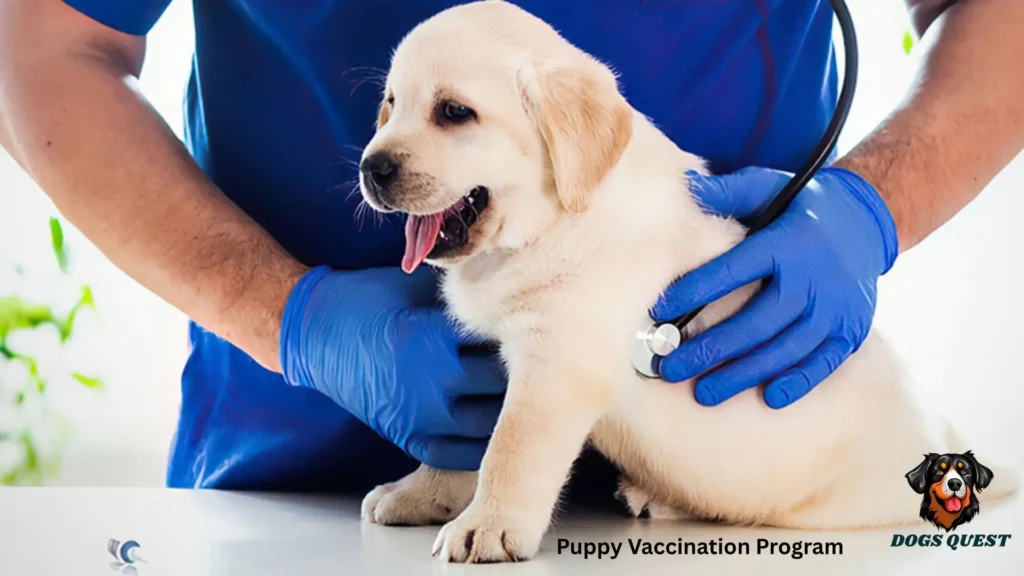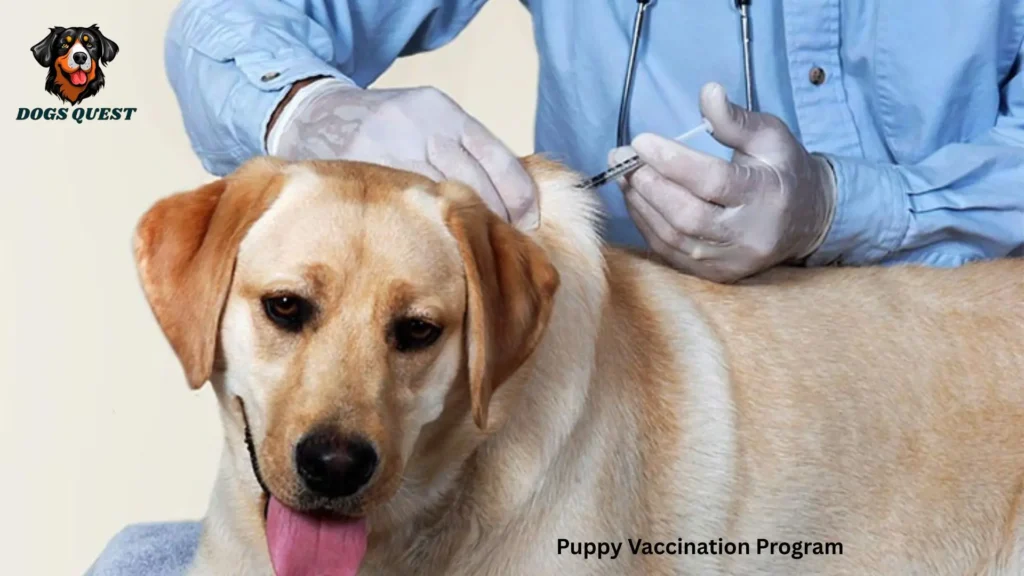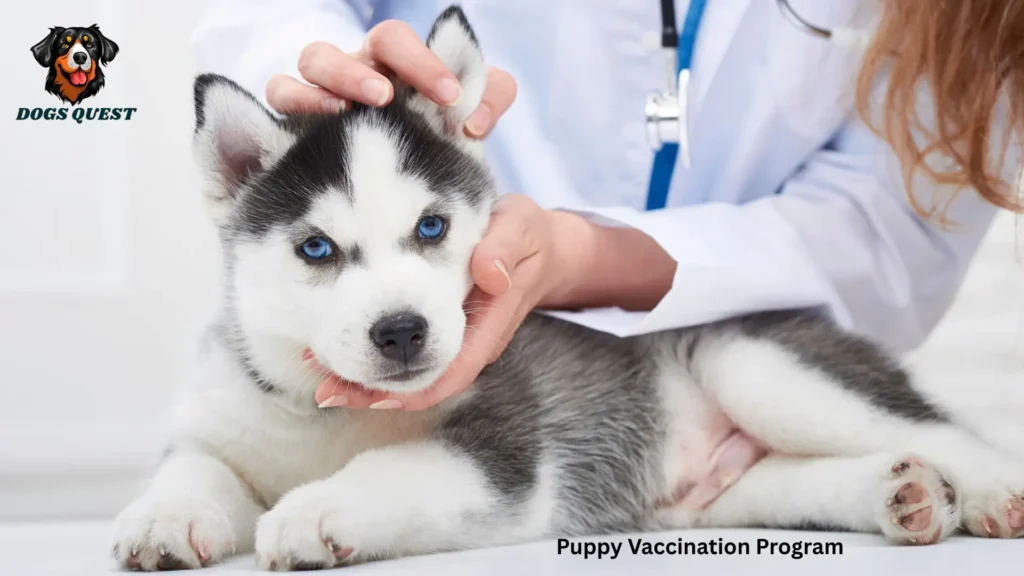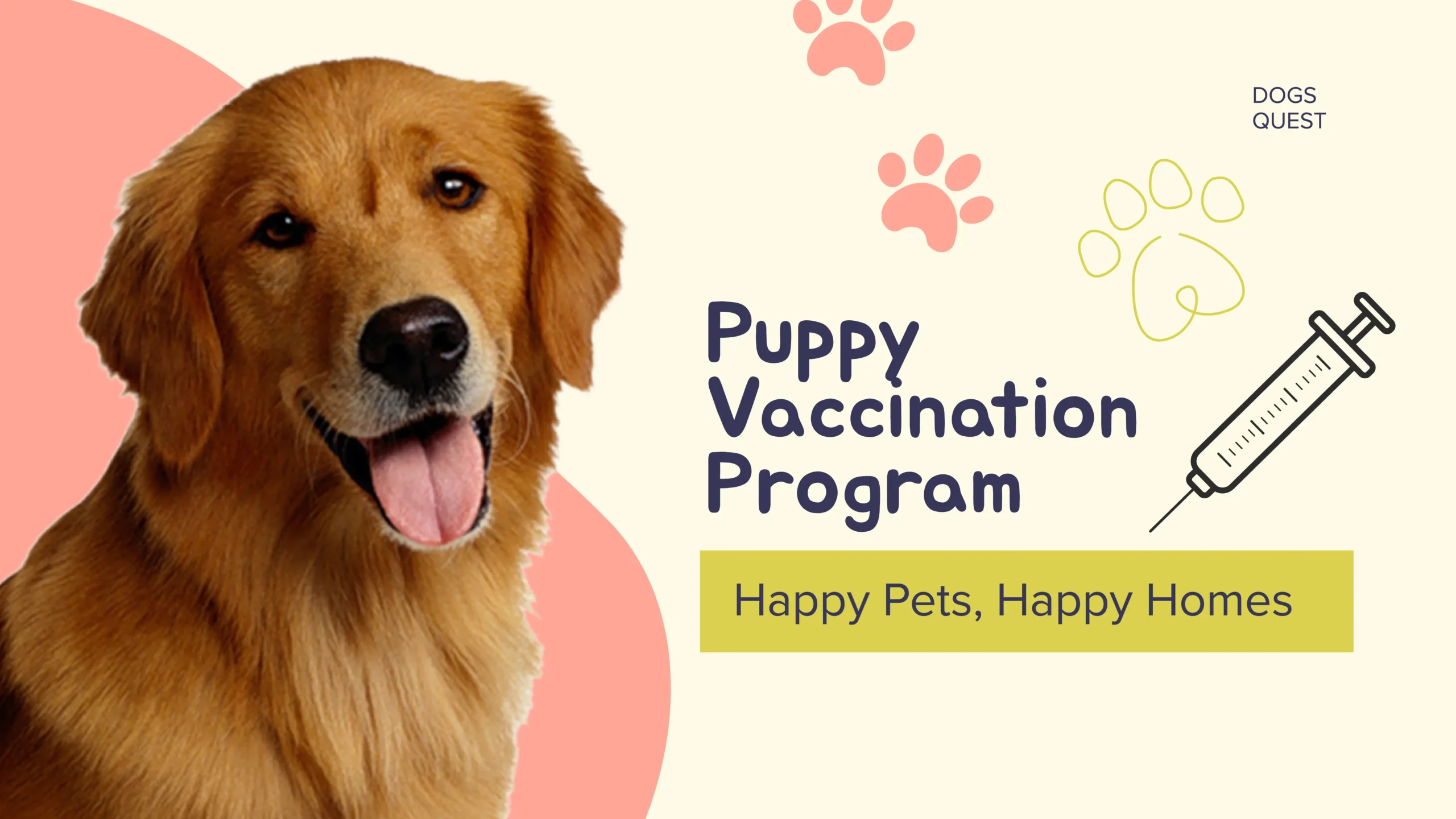Discover the ultimate puppy vaccination program guide with 10 powerful secrets every pet parent must know. Learn about schedules, core vaccines, safety tips, and why vaccination is the key to a healthy, happy puppy.
Introduction:
Welcoming a new puppy into your home is a joyful experience filled with cuddles, playtime, and endless excitement. But along with the fun comes a huge responsibility — protecting your puppy’s health. One of the most important steps you can take is following a puppy vaccination program.
Vaccinations safeguard your puppy from dangerous, sometimes life-threatening diseases. Just like babies need immunization, puppies also require a structured vaccine schedule. By following the right puppy vaccination program, you ensure that your furry friend grows into a strong, healthy adult dog.
In this guide, we’ll explore everything you need to know about a puppy vaccination program, including the vaccine schedule, types of vaccines, common myths, and professional tips to keep your pet safe.
What Is a Puppy Vaccination Program?

A puppy vaccination program is a structured schedule of vaccines recommended by veterinarians to protect your dog from viral and bacterial infections. These vaccines work by stimulating your puppy’s immune system to recognize and fight harmful pathogens.
Why Vaccinations Are Important
- Prevent deadly diseases like rabies, parvovirus, and distemper.
- Reduce the risk of spreading infections to other dogs.
- Protect human families from zoonotic diseases (diseases that can spread from animals to humans).
- Save on costly veterinary treatments in the future.
Simply put, a puppy vaccination program is the foundation of lifelong canine health.
Core Vaccines in a Puppy Vaccination Program
Not all vaccines are optional. Some are considered core vaccines — essential for every puppy, regardless of breed or lifestyle.
Distemper
A viral disease that affects the respiratory, gastrointestinal, and nervous systems. Distemper is highly contagious and often fatal, making vaccination critical.
Parvovirus
This disease causes severe vomiting, diarrhea, and dehydration. Puppies are especially vulnerable, and without vaccination, survival chances are very low.
Hepatitis (Adenovirus)
Canine hepatitis affects the liver and other organs. The vaccine offers long-lasting protection.
Rabies
Rabies is fatal and can be transmitted to humans. Laws in many countries make rabies vaccination mandatory.
These core vaccines are always part of a proper puppy vaccination program.
Non-Core Vaccines in a Puppy Vaccination Program

In addition to core vaccines, non-core vaccines are recommended based on your puppy’s environment and lifestyle.
Bordetella (Kennel Cough)
If your puppy spends time in daycare, dog parks, or kennels, this vaccine helps protect against respiratory infections.
Lyme Disease
Common in areas with ticks. If you live in a tick-prone region, your vet may include it in your puppy vaccination program.
Leptospirosis
A bacterial infection that can also affect humans. It is recommended in rural or water-rich areas.
Canine Influenza
Helps protect against highly contagious respiratory flu viruses in dogs.
These non-core vaccines make your puppy vaccination program more customized and effective.
Puppy Vaccination Program Schedule
The timing of vaccines is just as important as the vaccines themselves. Puppies get some immunity from their mother’s milk, but that protection fades after a few weeks. A structured schedule ensures continuous protection.
6–8 Weeks Old
- Distemper
- Parvovirus
- Hepatitis
- Bordetella (optional)
10–12 Weeks Old
- DHPP booster (Distemper, Hepatitis, Parvovirus, Parainfluenza)
- Leptospirosis (optional)
14–16 Weeks Old
- DHPP booster
- Rabies vaccine
12–16 Months Old
- Rabies booster
- DHPP booster
- Optional vaccines depending on environment
Adult Dog (Every 1–3 Years)
- Rabies (legally required in most areas)
- DHPP
- Non-core vaccines if needed
Following this puppy vaccination program schedule is the best way to protect your dog throughout its life.
Side Effects of Puppy Vaccination Program
Most puppies handle vaccinations well, but mild side effects can occur.
Common Reactions
- Low-grade fever
- Soreness at the injection site
- Temporary tiredness
- Mild loss of appetite
Rare Reactions
- Allergic swelling of the face
- Difficulty breathing
- Severe vomiting or diarrhea
Always monitor your puppy after vaccination. If symptoms seem severe, contact your vet immediately.
Myths About Puppy Vaccination Program
Many pet parents hesitate due to misinformation. Let’s clear up some common myths.
Myth 1: “My Puppy Doesn’t Go Outside, So No Vaccines Needed”
False. Even indoor dogs are at risk from airborne viruses or pathogens carried on shoes.
Myth 2: “Too Many Vaccines Overwhelm Puppies”
Wrong. Vaccines are carefully dosed to be safe and effective.
Myth 3: “Natural Immunity Is Enough”
While mother’s milk offers some protection, it fades quickly, leaving puppies vulnerable without a puppy vaccination program.
Cost of a Puppy Vaccination Program

The cost varies depending on location, veterinary clinic, and the number of vaccines needed.
- Initial vaccines (puppy stage): $75 – $200
- Boosters and non-core vaccines: $20 – $60 per shot
- Annual visits and updates: $100 – $300
Considering the cost of treating serious diseases, a puppy vaccination program is always more affordable than skipping vaccines.
Tips for Puppy Parents Following a Vaccination Program
Keep a Vaccine Record
Maintain a vaccination card or digital record. This is important for future vet visits, travel, and pet boarding.
Avoid Public Places Before Completion
Puppies are not fully protected until they finish their puppy vaccination program. Avoid dog parks, pet stores, and boarding facilities during this period.
Socialization After Vaccination
Once vaccinated, puppies can safely interact with other dogs — an essential part of training and development.
Follow Vet Advice Strictly
Never skip or delay vaccines without professional consultation.
Long-Term of a Puppy Vaccination Program
- Prevents life-threatening diseases.
- Ensures a longer, healthier life.
- Reduces public health risks.
- Builds a foundation for safe socialization and training.
In short, a puppy vaccination program is an investment in your dog’s future.
Conclusion:
A structured puppy vaccination program is more than a checklist — it’s your puppy’s shield against disease, suffering, and early death. By following the right vaccine schedule, staying consistent with boosters, and working closely with your vet, you set your puppy on the path to a long, joyful life.
Remember: vaccines save lives. Your puppy depends on you to make the right choice. So commit to a puppy vaccination program today — it’s the most loving gift you can give.
FAQs About Puppy Vaccination Program
Q1: At What Age Should I Start a Puppy Vaccination Program?
Most programs start at 6–8 weeks old.
Q2: Can I Vaccinate My Puppy at Home?
It’s not recommended. A veterinarian ensures proper dosage, safety, and record-keeping.
Q3: What Happens If I Miss a Vaccine?
Consult your vet immediately. They may restart or adjust the program to ensure protection.
Q4: Do Puppies Need Annual Vaccines?
Some vaccines require yearly boosters, while others last up to 3 years. Your vet will guide you.
Q5: Can Vaccines Make My Puppy Sick?
Mild side effects are normal, but serious reactions are rare. Benefits outweigh risks.

